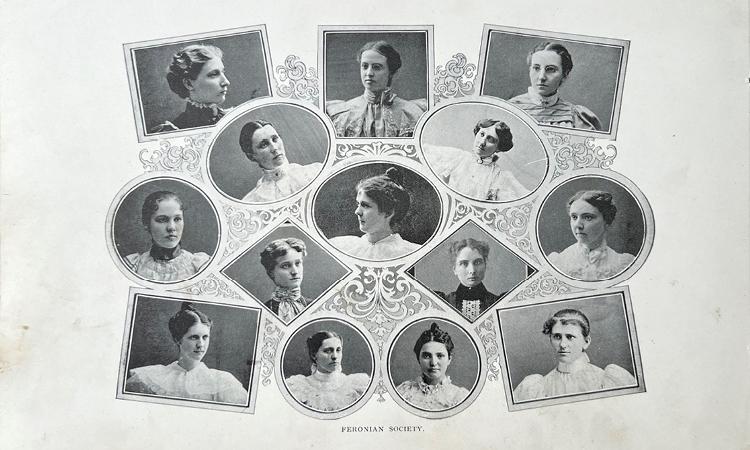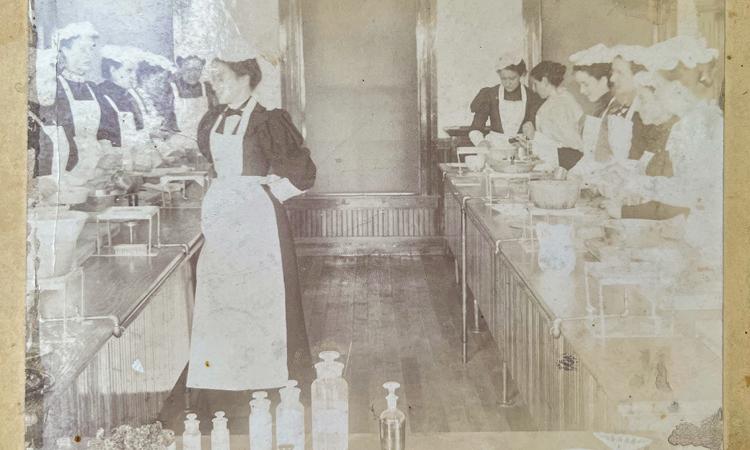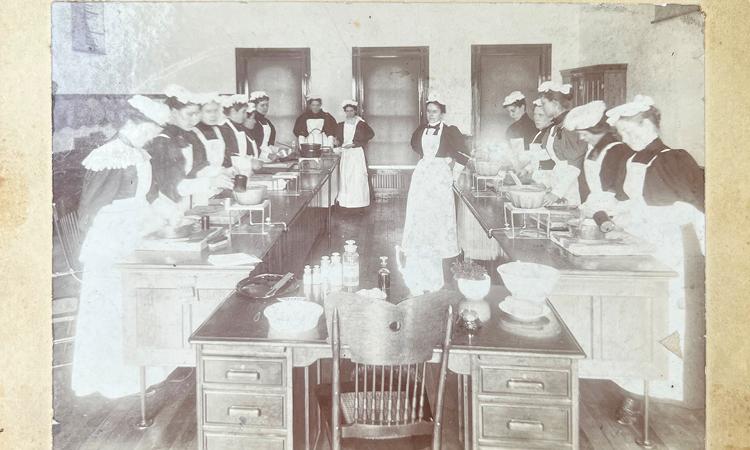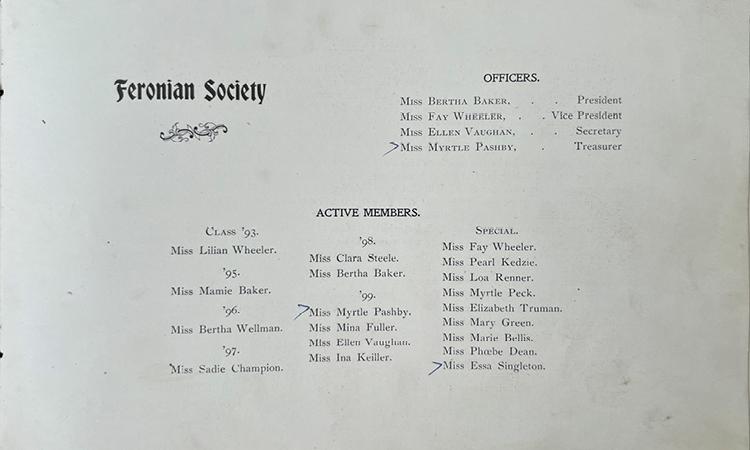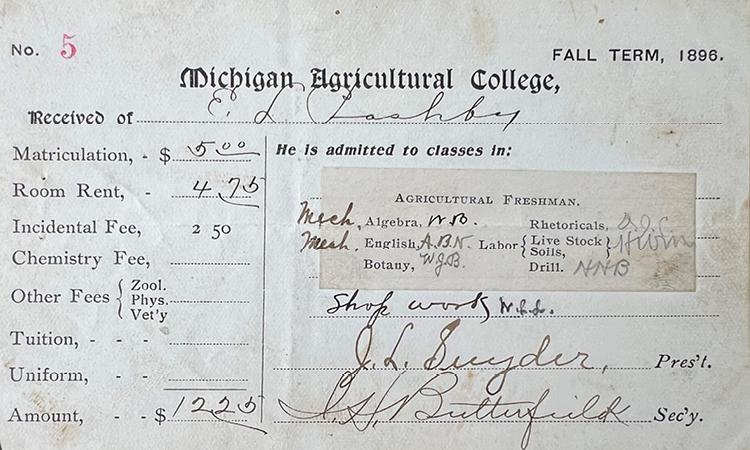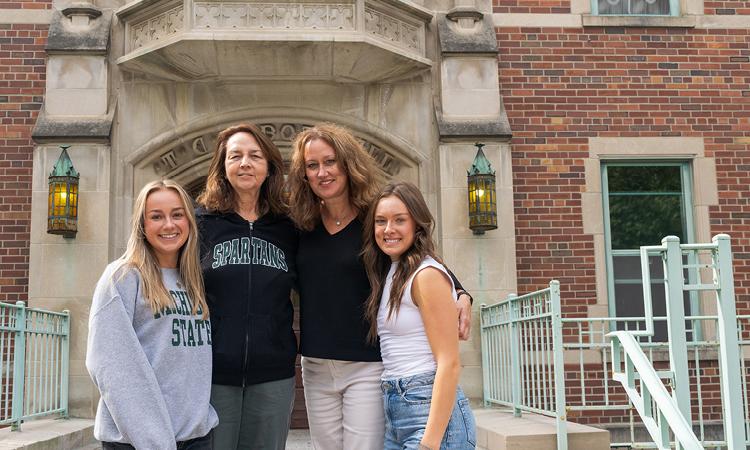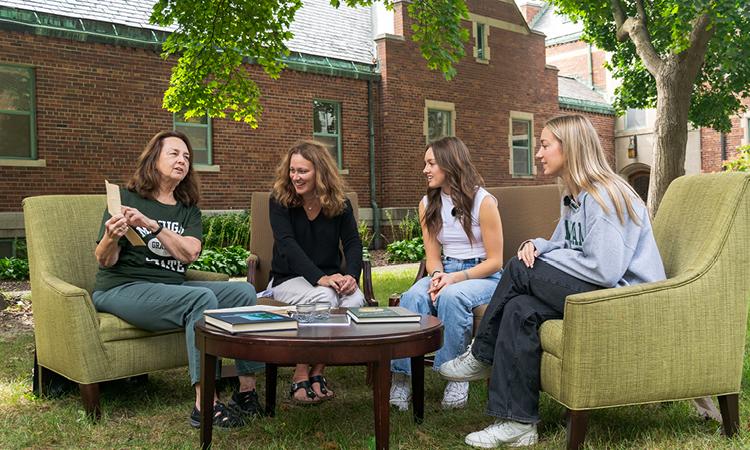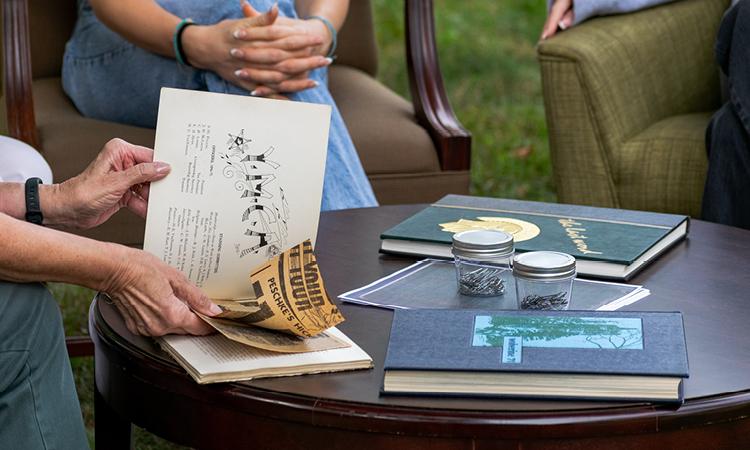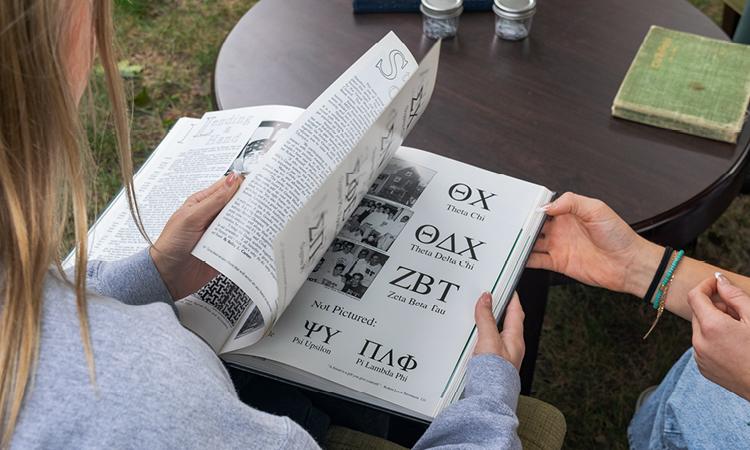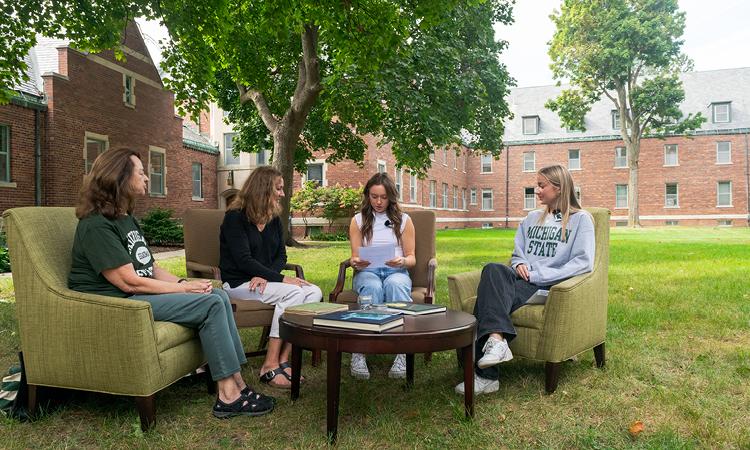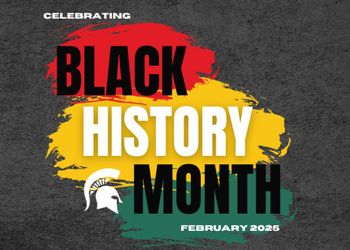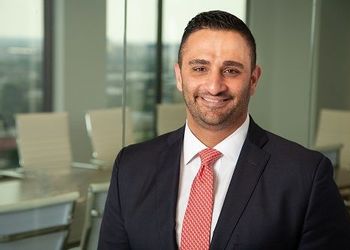One in a million: A Spartan story for the centuries
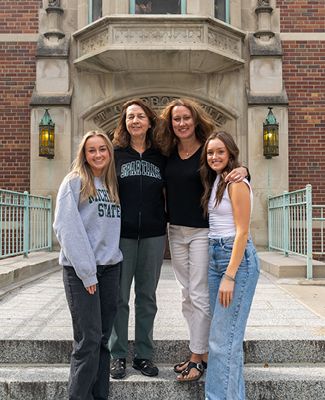
One in a million: A Spartan story for the centuries
November 25, 2024At 18 years old, Toni Hartke was given a yearbook.
Olive green and loosely bound, the cover was simple and unremarkable, offering little description of its contents. Stamped into the upper right corner were cryptic words: “Heliostat” in fading gold letters, and “M.A.C. 1896” in smaller type below. Already it was showing its age. Inside was a window to a bygone era—dated sepia photographs and choppy type on brittle pages wearing to a pale yellow at the edges.
The yearbook was a gift from Toni’s great-grandmother meant to celebrate her upcoming adventure as a student at Michigan State University. Old as it was, Toni could hardly hide her excitement and her surprise.
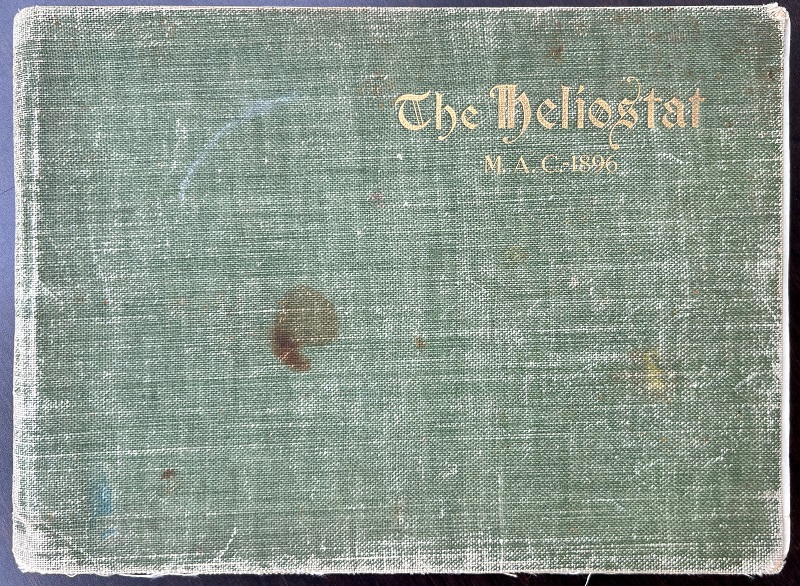
Toni’s ambition pushed her to enroll at MSU in 1967. Neither her mother nor her grandmother attended college, and they celebrated Toni’s decision to break barriers. Toni was a trailblazer—a goal-oriented woman in a world still in many ways administered by men. She dreamed of being a writer, a reporter dependent on her guile and creativity to make a difference in the world.
The biggest supporter in Toni’s corner was her great-grandmother, Essa Singleton Pashby. An uncommon connection existed between the two women born in drastically different eras over 70 years apart.
“We had a very close relationship,” Toni says. “I was very fortunate. I knew almost all my great-grandparents, which was very unusual. Some people don’t even know their grandparents let alone their great-grandparents.”
Essa’s gift unveiled a new truth. There was more that connected them than Toni imagined.
Once upon a time, Essa was a student at Michigan Agricultural College—later known as Michigan State University. A trailblazer of her own, she was one of the first students in MAC’s nascent women’s program created in 1896 to provide dedicated instruction in the domestic arts.
“I was shocked,” Toni says. “She didn’t really have a lot to give me for graduation, but the yearbook meant a lot to her, and it really was the most meaningful thing I could’ve ever gotten. I asked how I had never heard that story, and, apparently, she just didn’t think it was significant.”
The yearbook revealed to Toni a new side of her great-grandmother and also a new side of herself. More than just a collection of memories, the book was a confirmation of Toni’s courage, a testament to her tailored trajectory, and a glimpse into both her past and future.
For the past 60 years, the yearbook has remained Toni’s most cherished possession. The book’s meaning has only grown over time, becoming a symbol for her family’s long legacy—a legacy that is deeply rooted at Michigan State.
Four generations. Three centuries. All Spartan.
WHO WE WERE
Essa Singleton Pashby was born in the 1870s just years after the conclusion of the American Civil War. It was a pivotal period in the country’s history—a time of significant social and political transformation. Women at the end of the 19th century were embarking on a journey challenging societal gender roles.
Essa was certainly of that generation—fiercely independent and curious about what the world was and what it could be. Perhaps she saw something similar in her great-granddaughter, though Toni can only guess.
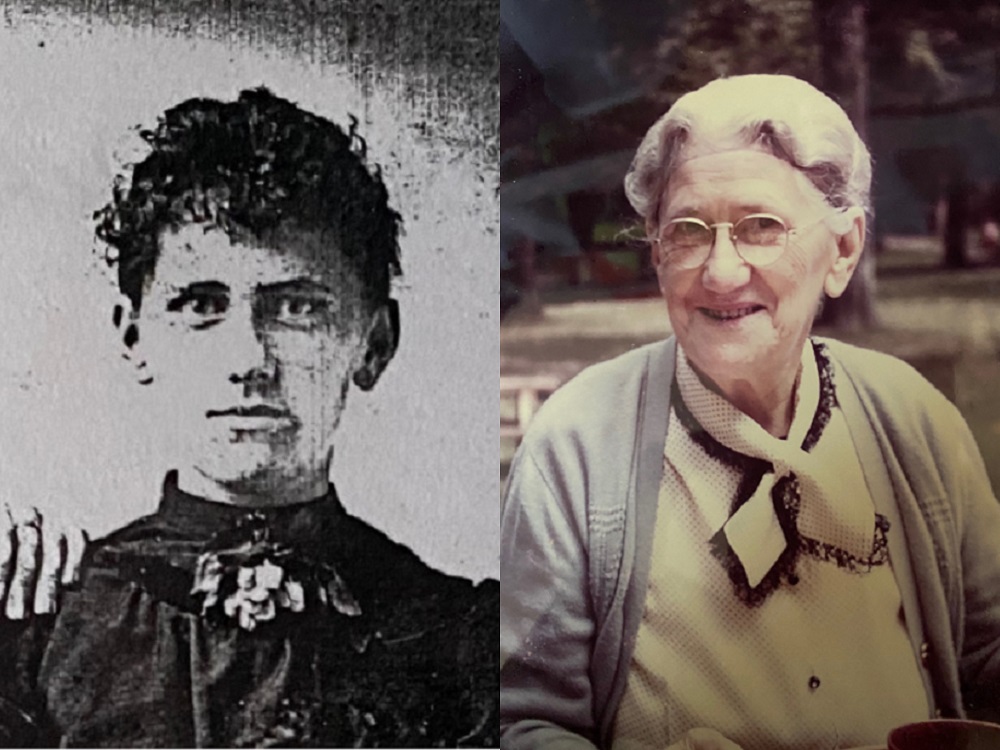
“She was retired and just great-grandma by the time I knew her,” Toni says. “I saw a lot of similarities between me and her. She always wanted to do things her way.”
Michigan Agricultural College gave Essa that opportunity.
Essa counted herself among the 39 regular and seven special students who enrolled in the first year of the Women’s Program. She was a member of the first women’s organization on campus, the Feronian Literary Society, which later became the Alpha Phi sorority in 1922. She took classes at Abbot Hall and the Women’s Building, now the Human Ecology Building. Toni had classes there, too, strengthening their connection. Both women also met their future husbands at MSU.
Essa married Elliot Pashby, an agriculture student and brother of Cyrus Pashby, a professor in the mathematics department. Much of the history of Essa and Elliot at MAC has been lost, including how long they were enrolled, but the impact of the college on their lives is irrefutable.
Toni wishes she had done more to fill in the blanks of her great-grandmother’s life. Essa passed away during Toni’s junior year.
“I didn’t fully embrace it,” Toni says. “I was excited about it, but I didn’t spend the time asking the questions I wish I had asked now. I missed an opportunity to learn more.”
It’s an opportunity she wasn’t going to let pass by again.
WHO WE ARE
Jennifer Hetzel calls her mother “the family historian.” Growing up, Toni documented every part of their lives. The family’s past became a treasure to be preserved.
“She was really like the first scrapbooker even before people used to do things like that,” Jennifer says. “She kept everything, and it was all marked and labeled in photo albums. She has a wealth of information, and her level of detail surpasses anyone I know. It’s impressive. Everything has its place.”
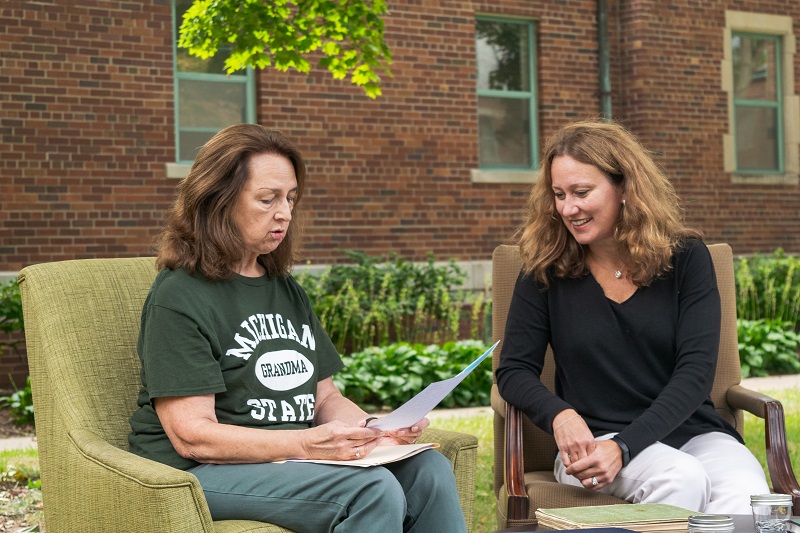
Michigan State holds a large place in the family’s culture. Toni and her husband, Michael, were married while still students at MSU and maintained their connection to the university well after graduation. They have season tickets for Spartan football, regularly go to basketball games and tailgates, and are frequent attendees of alumni events and trips.
Jennifer never considered other schools outside of MSU. She earned her B.A. from the College of Social Science (’95) and her J.D. from the MSU College of Law (’00). Her brother, Brandon, earned his B.A. from the Eli Broad College of Business (’00). Toni also returned for a postgraduate degree, receiving her Doctorate in Education in 1993.
Jennifer first heard Essa’s story late in high school. Though she never met her great-great-grandmother, Jennifer knew the family traced its roots back to the early days of the university.
“Looking back at the photos, it’s very significant,” Jennifer says. “There were only a handful of women at MAC at the time. She was a trailblazer. Those experiences that were passed down, the importance of education, that was instilled in our family. And my kids now, the opportunities they have would not have been possible if not for women like Grandma Pashby.”
Jennifer and her husband, Andy, have stretched the family’s Spartan history into a third century. The couple’s two daughters, Zoe and Lily, are the fourth generation to attend Michigan State University.
“It’s home to our family,” Jennifer said. “There are deep roots to the university. It’s something really unique and I’m proud of that legacy.”
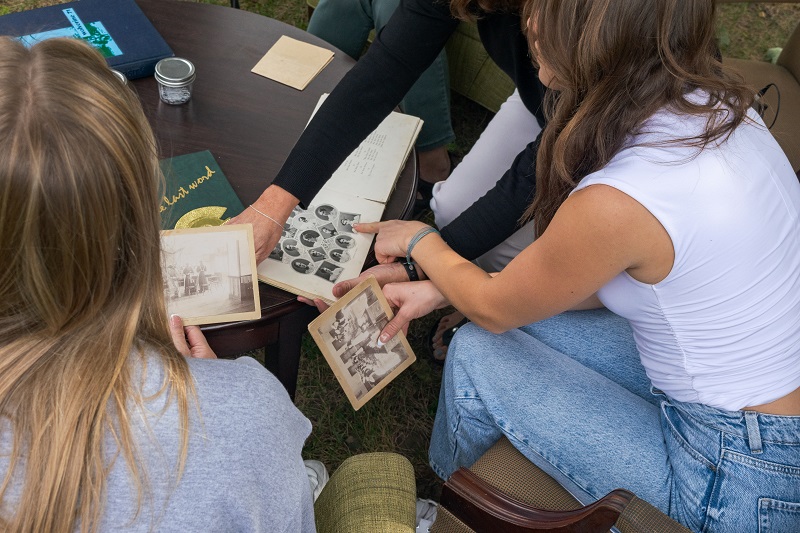
WHO WE WILL BE
Zoe Hetzel is the oldest of Toni and Michael’s five grandchildren. Like her mother before her, MSU has always been a part of her life and her identity. Zoe went to Grandparents University at MSU for four straight years between 2014-17 and MSU Extension’s 4-H Exploration Days in 2018. Grandparents University gave Zoe—and later her sister and cousins—a chance to experience college life and build amazing memories as kids.
“That was really fun. It broadened your ideas of what college could be,” Zoe says. “I’ve always just felt very comfortable here. We’ve always been a Michigan State family. I didn’t necessarily know if I would come here or not, but I knew that I would always be a fan.”
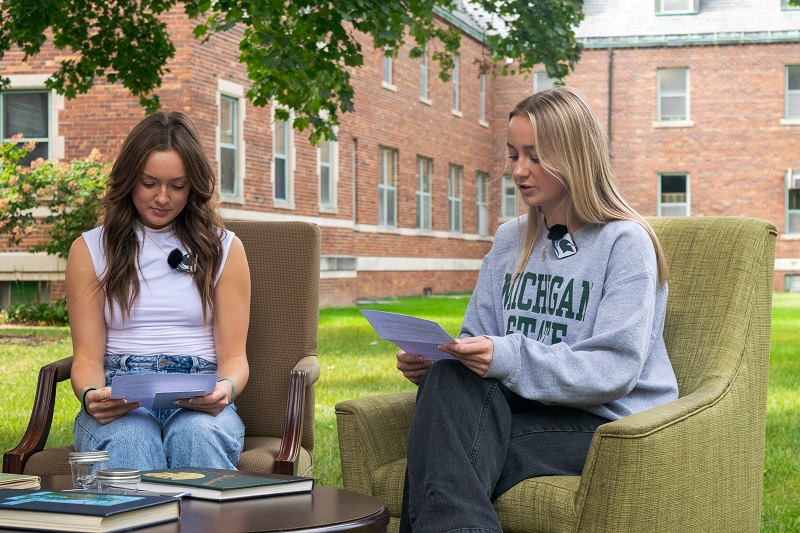
Though neither sister ever felt pressure to follow their family’s footsteps to East Lansing, both Zoe and Lily ended up there just the same. Zoe enrolled at MSU in 2022, and Lily joined her on campus as a freshman this past fall.
They grew up hearing stories about Essa and Michigan Agricultural College though only recently did they get their first glance at their grandmother’s prized heirloom. Essa’s 1896 yearbook has become a rite of passage for the next generation to explore once they’ve committed to becoming Spartans.
“It’s something I love telling people about,” Lily says. “Whenever I say it, everybody’s jaws just drop. It’s inspiring that one of my super-great grandmas was so important for her time and inspired other women to follow and go to college. It ended up going through a bunch of generations and coming down to me. It’s strengthened the love and the bond I’ve already had with MSU for a really long time.”
Toni’s passion for ancestry manifested in both girls’ lives from a young age. But instead of focusing on the ghosts of the past, Toni taught her granddaughters the power of their own memories, the importance of their own story—a story she taught them to record and remember. Growing up, quality time with grandma was spent between the pages of scrapbooks. Everything from youth soccer games, to birthday parties, to the minutiae of middle school was put on paper.
“My sister and I love to scrapbook,” Lily says. “We love to do stuff with photos and capture moments in our lives. I think we can trace that back to being young and doing that with my grandma all over the floor of her house.”
Toni is confident that the family’s story will continue long after she’s gone. Zoe has started taking over the role of the “family historian.”
“I don’t think I can replace what she has done, but it’s important to keep the legacy going. It’s something I value and something I’ll keep respecting as I get older,” Zoe says. “I feel like I’m carrying out our legacy, especially the women. Because of them, I have all these opportunities open for me. They would be super happy to see where Michigan State is now and to see my sister and me here making the most of a school they helped create.
“I’m really one in a million here.”
Author: Ryan Loren


